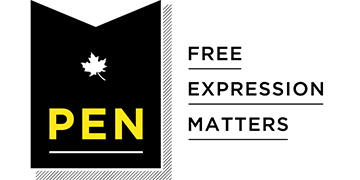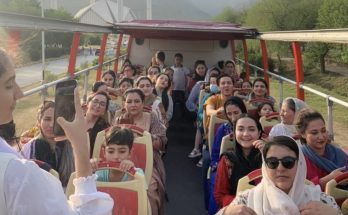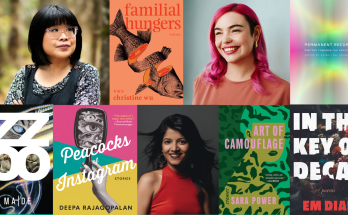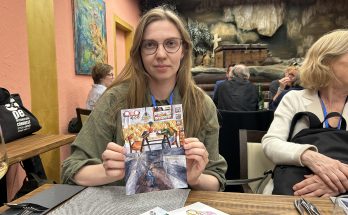Onder Deligoz is a Turkish author and journalist currently residing in Canada. He was the recipient of the 2018 Humber School of Writers, PEN Writers in Exile Scholarship. The full scholarship is available to writers in exile who wish to participate in Humber’s Creative Writing by Correspondence Program, where students work with a professional writer-mentor to improve their short stories, poems, memoir, or novel-in-progress.
PEN Canada: For starters, what caused you to leave Turkey?
Onder Deligoz: As a journalist, you have two choices in a country which is sliding into a dictatorship. Chasing only the truth for news or turning into a pro-government journalist, which means losing integrity and earning too much money. Despite increasing political pressure, I chose the first option like other independent journalists do. For that reason, I was one of the journalists whom the government wanted to silence. Summer 2016 was the worst time for all television and radio channels and newspapers that were critical of the new regime. A state of emergency was declared by the Turkish government, and all of them were shut down. Critical journalists were also being picked up in groups and arrested. Turkey had turned into hell for journalists. Therefore, I decided to leave in July 2016. While I was sadly following the news of my journalist friends’ arrests, an arrest warrant had been put out for me by the end of August 2016. The government raided my apartment in Istanbul and cancelled my passport.
PC: What has been the most difficult part of being a writer in exile?
OD: The most difficult part of being a writer in exile is being unable to do anything to free Turkey’s jailed journalists or to prevent the collapse of democracy in my country.
PC: Your novel, Love After You Have Gone, focuses on the stories of individuals, which it uses to explore broader issues of secularism, religiousness, and hypocrisy, among others. What drove you to write this story?
OD: Hypocrisy in politics makes countries into empires of lies. Hypocrisy in religion creates a social pressure to force people to obey the rules that make politicians and religious leaders stronger and richer. Love After You Have Gone tells a story of the people that have terrible lives due to radical religious and secularist rules in 1990s Turkey. The novel introduces the lives that hatred and alienation have defeated in the back streets. It strikes the hypocrisy behind religiousness in the face with real-life examples so that people can have a chance to understand how Turkey became an authoritarian regime.
PC: On that note, what do you think novels allow you to do that journalism does not? How do you think they differ when tackling social or political topics?
OD: A journalist is a person who runs after new and different information. Narrating the obtained information and documents in the plainest form is the core of this profession. Especially for social and political issues, journalism does not accommodate emotional vacillation. You may not reflect your happiness, sadness or anger on your news report and set up an emotional corridor with the reader. This is why being a novel writer is like walking in the emotional corridor for me… It is an indefinable freedom for me to interpret the events I witness and the characters I meet in real life while walking in that emotional corridor.
PC: Love After You Have Gone was your first novel. What did you learn from the experience of writing it?
OD: Love after You Have Gone has been a very important experience for me to hold on to both in writing and in life. After so many years of writing news and documentary texts, penning a fictional text provoked as deep an impact on me as waking up to a new life. I saw that it is the real freedom to portray events, emotions, people, animals and even plants using unlimited variations of words.
PC: You are the recipient of the 2018 PEN Canada-Humber College Writers-in-Exile Scholarship. How has the scholarship and program helped you?
OD: I had a chance to work with author Boris Fishman thanks to the PEN Canada-Humber College Writers-in-Exile Scholarship. It was a dreamlike opportunity for me. I completed the preparation of my second novel under his mentorship. Forming the construct of the novel according to the audience speaking English as their mother language was the most difficult issue for me. I believe that the construct and the writing language of my new novel have gained a significant quality and strength thanks to the subtle interpretations and viewpoints of my mentor. I obtained valuable information from my mentor in the field of creative writing during this process. I am grateful to PEN Canada, Humber College and Boris Fishman.
PC: What writers would you say have had the greatest influence on you?
OD: José Saramago is captivating for me, especially with his novel Blindness. I admire Saramago for his sensitivity and magnificent imagination. And Elif Safak is my biggest inspiration from Turkish literature. By using amazing details, she evokes greater emotions.
PC: If we may ask, what are you working on now?
OD: I am now at the last editing stage of my second novel. The novel tells the story of a Syrian girl and her mother’s struggle to escape from death. A girl, who escaped from ISIS by using her bloody way, and a mother, who wants to get back her Turkish identity to make a new life for her daughter in Turkey. Your struggle can succeed, however, sometimes you would prefer to get killed by a bullet back home.



